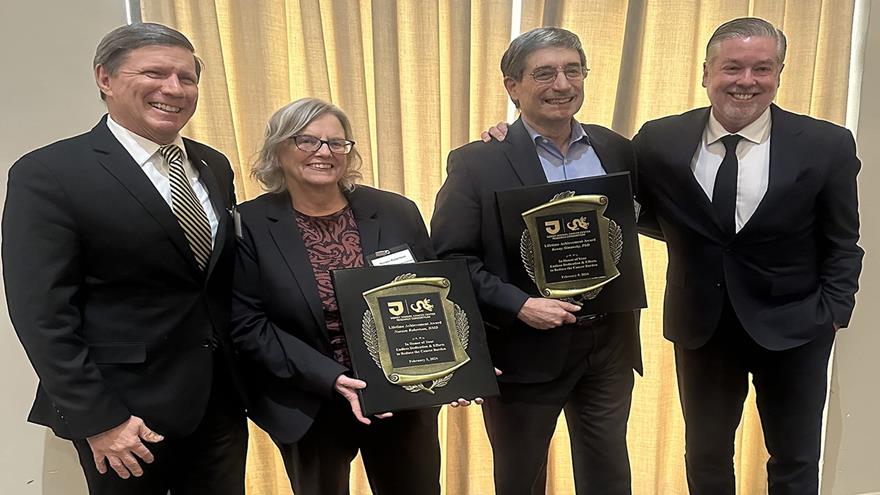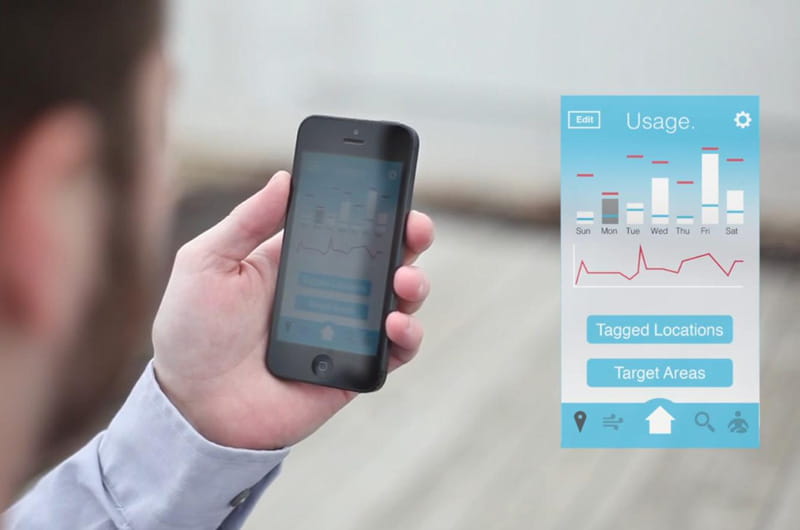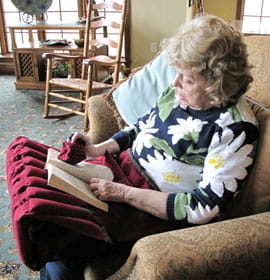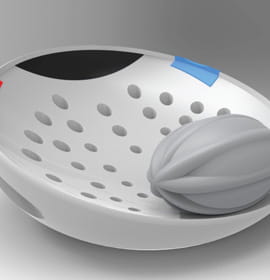Seniors from Drexel’s Inaugural Product Design Class Create Prototypes that Solve Real-World Problems

- Bolstered by Research Consortium with Drexel, Jefferson’s Sidney Kimmel Cancer Center Earns NCI Comprehensive Cancer Center Designation
- No link between acetaminophen use during pregnancy and children's autism risk
- Drexel Recognizes Gregory E. Deavens, CPA, CGMA as Business Leader of the Year
- Through Connections and Community, Drexel Course Helps Launch Computer Lab in Tanzania

Approximately 40 million Americans suffer from asthma. When Osman Cueto was five years old, he found out he was one of them.
Upon being diagnosed with the chronic disease, Cueto, now a senior product design major at Drexel University, was prescribed an inhaler to treat his symptoms. He quickly noticed that he struggled with certain aspects of using the inhaler – from finding it when he needed it to remembering to get it refilled. Throughout his life, he’s noticed other asthmatics experiencing similar frustrations.
Upon being diagnosed with the chronic disease, Cueto, now a senior product design major at Drexel University, was prescribed an inhaler to treat his symptoms. He quickly noticed that he struggled with certain aspects of using the inhaler – from finding it when he needed it to remembering to get it refilled. Throughout his life, he’s noticed other asthmatics experiencing similar frustrations.
The design includes a mobile application for smartphones that helps the user to learn more about their disease. The app also tracks where the inhaler is located, when and where the inhaler is used, how much medicine is left in it and when refills are needed.
Along with the app, Cueto developed a prototype of a redesigned inhaler. Finding that the L-shape of the traditional inhaler was cumbersome in his pocket and that the cap would often fall off and get lost, his redesigned inhaler is flat for easier storage and transport, and features a mouthpiece within a sleeve so that no cap is necessary.
Cueto produced the following video as an overview of his prototype:
Cueto entered Drexel for engineering, but quickly found his passion in product design. During his junior year, he took advantage of a six-month co-operative education opportunity, or co-op, at Bath & Body Works in New York City, during which he designed a holiday line of plug-in air fresheners. He also did a six-month co-op at ECCO, an award winning firm dealing mainly with consumer electronics.
Cueto entered Drexel for engineering, but quickly found his passion in product design. During his junior year, he took advantage of a six-month co-operative education opportunity, or co-op, at Bath & Body Works in New York City, during which he designed a holiday line of plug-in air fresheners. He also did a six-month co-op at ECCO, an award winning firm dealing mainly with consumer electronics.
The program also encourages exploration in sustainability and innovation in product development, incorporating the fields of art, business, engineering and technology.
The program also encourages exploration in sustainability and innovation in product development, incorporating the fields of art, business, engineering and technology.
“More than ever, the world needs people who can bring meaningful ideas to life,” said Michael Glaser, an assistant professor and director of the product design program. “We call this program ‘product design,’ but essentially what this program is about is creating ‘thinker-makers’ – people who see the world, understand it and have empathy, and then synthesize that into solving the worlds’ problems.”
“Design is changing the world in so many different streams – philanthropy, politics, entrepreneurship – we want students to be empowered and to take design where they want to take it,” Glaser said.
“Design is changing the world in so many different streams – philanthropy, politics, entrepreneurship – we want students to be empowered and to take design where they want to take it,” Glaser said.
With the help of Kevin Sacherman, a student in Drexel’s School of Biomedical Engineering Science and Health Systems, Hudson developed a prototype for light therapy glasses that infuse light directly into the users’ eyes, helping to increase serotonin levels as the light is positioned to the retina. This mobile light therapy helps SAD sufferers in a way that fits their lifestyle.
Alexa Forney’s project addresses concerns about food insecurity, or the lack of availability of food. With the goal of igniting people’s interest in being self-sufficient, she designed low-cost kits that provide basic instructions and tools necessary for such things as growing lettuce, making bread and churning butter, in order to help people become more independent and to produce their own food. The project was inspired, in part, by her work on farm sites in the Kensington area of Philadelphia and West Philadelphia during her junior year.
Alexa Forney’s project addresses concerns about food insecurity, or the lack of availability of food. With the goal of igniting people’s interest in being self-sufficient, she designed low-cost kits that provide basic instructions and tools necessary for such things as growing lettuce, making bread and churning butter, in order to help people become more independent and to produce their own food. The project was inspired, in part, by her work on farm sites in the Kensington area of Philadelphia and West Philadelphia during her junior year.
Another smartphone app, designed by Jingqia (Eric) Wang, seeks to help prevent sports injuries. Wang, a former athlete, suffered a career-ending injury which inspired the app. The app connects to a pair of sneakers equipped with motion trackers and force sensors that monitor the user’s movements and other data which are then analyzed by the app.

Megan Peaslee was inspired by her grandmother, who suffers from arthritis, to design a product that would help aging people read without pain. Her “Acute Reader” stand supports the weight of a book, as well as aiding in keeping the book open and turning the pages. The design has the potential to improve quality of life for aging people and return to them the joy of reading.
Nnaemeke Offodile’s project also addresses arthritis pain. The therapy bowl he created, which is intended for use by people with rheumatoid arthritis before and after tasks that are usually painful, mitigates pain through heat and cold. The product incorporates proven methods of arthritis treatments such as moist heat therapy, cold therapy, massaging and stretching. Offodile’s project won in the category “Creative Arts & Design” at Drexel’s Research Day 2014.

Jake Beadenkopf created “Make Shoes,” a do-it-yourself shoe design that can be assembled without any specialized tools and can be constructed out of any fabric, allowing those in need to make shoes for themselves. Nick Kovacs noticed that instruments aren’t designed for people with developmental delays, so he envisioned redesigned instruments that can be used in music therapy sessions to improve motor and social skills.
Over the course of the term, periodic reviews were held, during which students would get feedback on their projects from representatives from the design industry. Guest reviewers included product/food designer Michelle Zatta; Efe Kutuk, assistant professor of industrial design at New Jersey Institute of Technology; Neil Epstein, associate creative director for user experience product and design at Comcast; Andrew Harvard, user experience designer at Intuitive Company; Tom Wingert, director of advancement for IgniteGood; Julie Biron Maletz, user experience designer for Comcast; and Carla Diana, author and smart fellow for Independent Creative.
In order to raise funds to cover the cost of producing the senior show, the students launched an Indiegogo campaign so individuals and organizations can donate money to be used for event catering, promotions and material costs. Those interested in contributing, can click here or email drexelprod@gmail.com.
As part of the campaign, they produced the following video, which gives an overview of the program and the scope of the show:
The product design senior show will be on display in the Leonard Pearlstein Galley in the URBN Center Annex (3401 Filbert St.) from Friday, May 30 through Monday, June 2 from 11 a.m. – 6 p.m. It is free and open to the public. A reception will be held on May 30 from 6 – 8 p.m.
Drexel News is produced by
University Marketing and Communications.